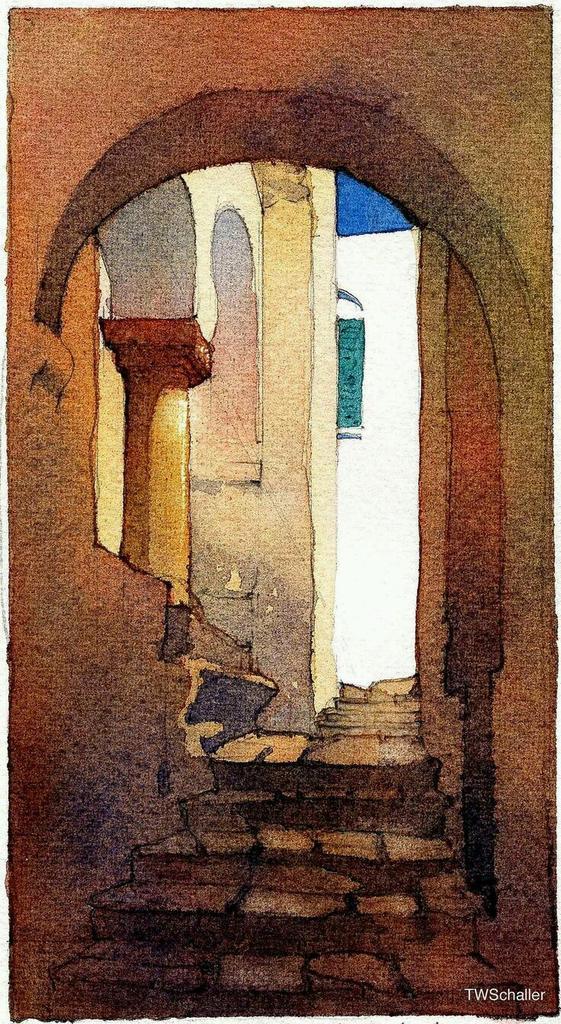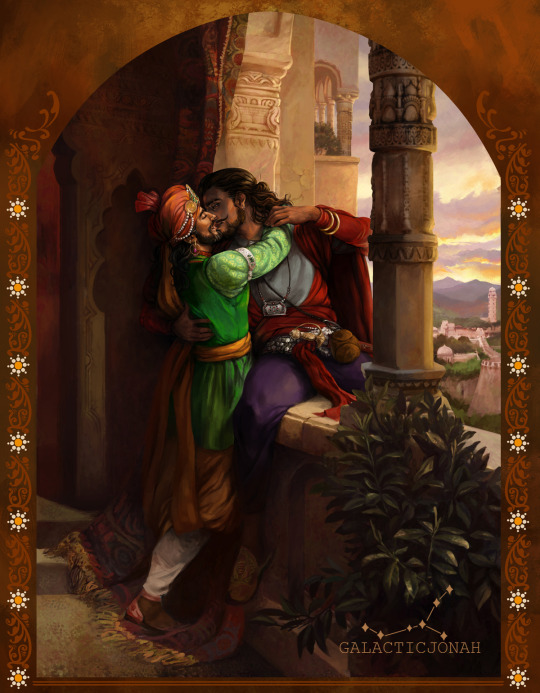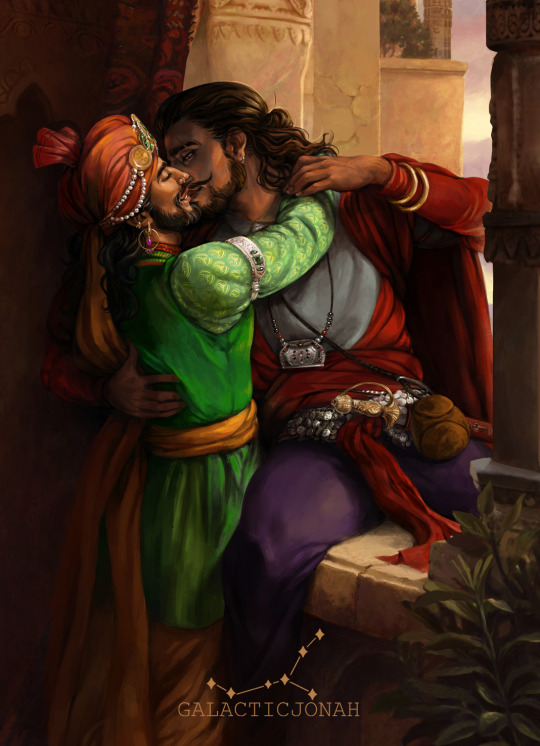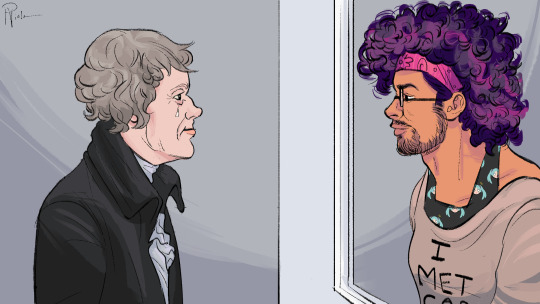He/they, 24yo french guy that is a little too much into BG3. Talk to me about it. Please. pfp done by @catebeesart of my BG3 OC
Don't wanna be here? Send us removal request.
Text
This is a dangerous sentiment for me to express, as an editor who spends most of my working life telling writers to knock it off with the 45-word sentences and the adverbs and tortured metaphors, but I do think we're living through a period of weird pragmatic puritanism in mainstream literary taste.
e.g. I keep seeing people talk about 'purple prose' when they actually mean 'the writer uses vivid and/or metaphorical descriptive language'. I've seen people who present themselves as educators offer some of the best genre writing in western canon as examples of 'purple prose' because it engages strategically in prose-poetry to evoke mood and I guess that's sheer decadence when you could instead say "it was dark and scary outside". But that's not what purple prose means. Purple means the construction of the prose itself gets in the way of conveying meaning. mid-00s horse RPers know what I'm talking about. Cerulean orbs flash'd fire as they turn'd 'pon rollforth land, yonder horizonways. <= if I had to read this when I was 12, you don't get to call Ray Bradbury's prose 'purple'.
I griped on here recently about the prepossession with fictional characters in fictional narratives behaving 'rationally' and 'realistically' as if the sole purpose of a made-up story is to convince you it could have happened. No wonder the epistolary form is having a tumblr renaissance. One million billion arguments and thought experiments about The Ones Who Walk Away From Omelas that almost all evade the point of the story: that you can't wriggle out of it. The narrator is telling you how it was, is and will be, and you must confront the dissonances it evokes and digest your discomfort. 'Realistic' begins on the author's terms, that's what gives them the power to reach into your brain and fiddle about until sparks happen. You kind of have to trust the process a little bit.
This ultra-orthodox attitude to writing shares a lot of common ground with the tight, tight commodification of art in online spaces. And I mean commodification in the truest sense - the reconstruction of the thing to maximise its capacity to interface with markets. Form and function are overwhelmingly privileged over cloudy ideas like meaning, intent and possibility, because you can apply a sliding value scale to the material aspects of a work. But you can't charge extra for 'more challenging conceptual response to the milieu' in a commission drive. So that shit becomes vestigial. It isn't valued, it isn't taught, so eventually it isn't sought out. At best it's mystified as part of a given writer/artist's 'talent', but either way it grows incumbent on the individual to care enough about that kind of skill to cultivate it.
And it's risky, because unmeasurables come with the possibility of rejection or failure. Drop in too many allegorical descriptions of the rose garden and someone will decide your prose is 'purple' and unserious. A lot of online audiences seem to be terrified of being considered pretentious in their tastes. That creates a real unwillingness to step out into discursive spaces where you 🫵 are expected to develop and explore a personal relationship with each element of a work. No guard rails, no right answers. Word of god is shit to us out here. But fear of getting that kind of analysis wrong makes people hove to work that slavishly explains itself on every page. And I'm left wondering, what's the point of art that leads every single participant to the same conclusion? See Spot run. Run, Spot, run. Down the rollforth land, yonder horizonways. I just want to read more weird stuff.
30K notes
·
View notes
Text
2K notes
·
View notes
Photo

Street in Sifnos by Thomas W Schaller
watercolour painting
152 notes
·
View notes
Text
Finally worked myself up to working on the dragonborn shader again, opened it up in the toolkit and went "oh this doesn’t look so bad, it doesn’t look nearly as complicated as I thought". Anyway, I can bet with almost absolute certainty that this is me right now:

9 notes
·
View notes
Text
Reaching, tiptoe, lifting the bow down off its peg, still secure in the burnished case that held it, down she sank, laying the case across her knees, and dissolved in tears with a high thin wail as she drew her husband's weapon from its sheath.
3K notes
·
View notes
Text
In the past fifty years, fantasy’s greatest sin might be its creation of a bland, invariant, faux-Medieval European backdrop. The problem isn’t that every fantasy novel is set in the same place: pick a given book, and it probably deviates somehow. The problem is that the texture of this place gets everywhere.
What’s texture, specifically? Exactly what Elliot says: material culture. Social space. The textiles people use, the jobs they perform, the crops they harvest, the seasons they expect, even the way they construct their names. Fantasy writing doesn’t usually care much about these details, because it doesn’t usually care much about the little people – laborers, full-time mothers, sharecroppers, so on. (The last two books of Earthsea represent LeGuin’s remarkable attack on this tendency in her own writing.) So the fantasy writer defaults – fills in the tough details with the easiest available solution, and moves back to the world-saving, vengeance-seeking, intrigue-knotting narrative. Availability heuristics kick in, and we get another world of feudal serfs hunting deer and eating grains, of Western name constructions and Western social assumptions. (Husband and wife is not the universal historical norm for family structure, for instance.)
Defaulting is the root of a great many evils. Defaulting happens when we don’t think too much about something we write – a character description, a gender dynamic, a textile on display, the weave of the rug. Absent much thought, automaticity, the brain’s subsconscious autopilot, invokes the easiest available prototype – in the case of a gender dynamic, dad will read the paper, and mom will cut the protagonist’s hair. Or, in the case of worldbuilding, we default to the bland fantasy backdrop we know, and thereby reinforce it. It’s not done out of malice, but it’s still done.
The only way to fight this is by thinking about the little stuff. So: I was quite wrong. You do need to worldbuild pretty hard. Worldbuild against the grain, and worldbuild to challenge. Think about the little stuff. You don’t need to position every rain shadow and align every tectonic plate before you start your short story. But you do need to build a base of historical information that disrupts and overturns your implicit assumptions about how societies ‘ordinarily’ work, what they ‘ordinarily’ eat, who they ‘ordinarily’ sleep with. Remember that your slice of life experience is deeply atypical and selective, filtered through a particular culture with particular norms. If you stick to your easy automatic tendencies, you’ll produce sexist, racist writing – because our culture still has sexist, racist tendencies, tendencies we internalize, tendencies we can now even measure and quantify in a laboratory. And you’ll produce narrow writing, writing that generalizes a particular historical moment, its flavors and tongues, to a fantasy world that should be much broader and more varied. Don’t assume that the world you see around you, its structures and systems, is inevitable.
We... need worldbuilding by Seth Dickinson
12K notes
·
View notes
Text
The most inconvenient truth is that men do misogyny because they get something from it. They get labor from intimate partners, they get social capital in their public circles, they get the benefit of the doubt, they get default respect and promotions and people listening to them and people afraid of them.
5K notes
·
View notes
Text


"Parting is such sweet sorrow..."
A re-imagination of Dicksee's Romeo & Juliet, set in ancient Rajasthan.
I got to make this piece for the amazing Classics but make it Gay II project, that reimagines art through the eyes of queer artists. I also wanted to move the lens of classical paintings away from Europe and dedicate this piece to the beauty and rich history of India < 3
2K notes
·
View notes
Text

Only on the darkest arctic nights can you encounter this Primordial Pokémon. It manifests as aurora and ice, gently towering over the pole's frigid denizens... ✨❄️🧊 (There are 12 kinds of Pokémon in this #art! Can you find 'em all? Some are well hidden... Have fun, open your mind, & don't give away answers! 💕) Image on Bluesky~
9K notes
·
View notes
Text

I can't tell if it's done or not, because I'm not sure if I like it 😭!
Plus, the spear looks like a staff...
19K notes
·
View notes
Text

My sister got a new kitten and it immediately decided to loaf on a watermelon and bless us with this picture.
10K notes
·
View notes





